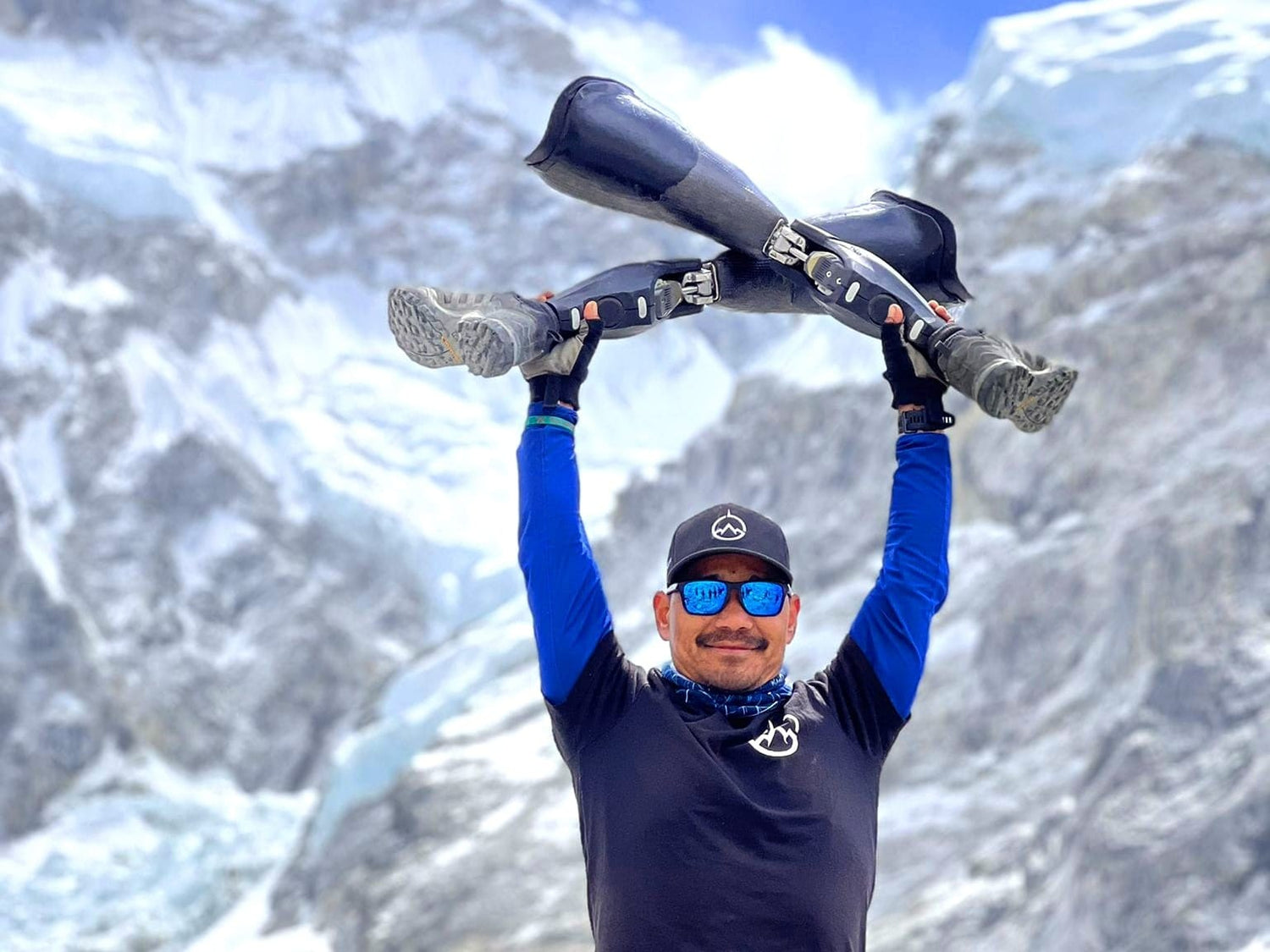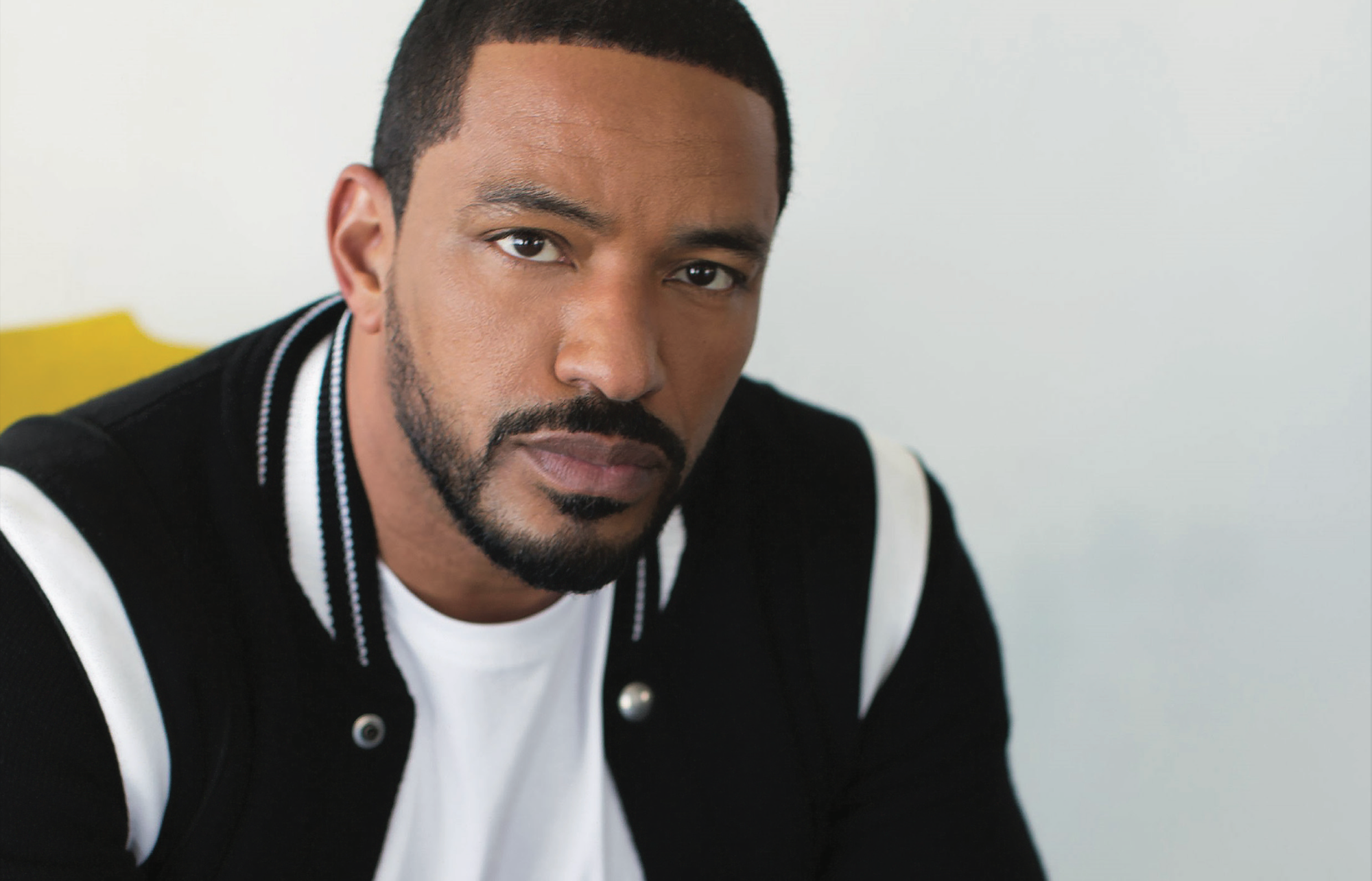43-year-old Hari Budha Magar has stood victorious atop the world’s tallest mountain as the first ever double above the knee amputee to scale Everest.
Through his climb, Hari aims to change perceptions on disability and inspire people to climb their own ‘mountains’ no matter the adversity that stands in their way.
Having grown up in the Nepalese mountains before serving 15 years as a Corporal with the Ghurkha Regiment of the British Army, scaling Everest was a boyhood dream for Hari.
Devastatingly an IED in Afghanistan took both his legs in 2010 - an event he thought would shatter his lifelong dream.
Thirteen years later, having overturned a law banning disabled climbers from the mountain, Hari has achieved what many thought impossible, proving disability is no barrier to reaching the 8,849 metre peak.
Hari summitted at around 3pm on May 19th.
Hari’s climb was made possible by a world class team of Nepalese climbers, led by Expedition Leader Krish Thapa, of HST Adventures, who served at the SAS’s Mountain Troop Leader during a 24-year British Forces career that started like Hari as a Gurkha before 18 years in the SAS.
At the top, Hari shouted “We did it!”, a reference to, and in recognition of, the team effort that it possible.
Over a satellite phone call, made possible by NSSL Global, to his team, he added; “That was tough. Harder than I could have ever imagined. We just had to carry on and push for the top, no matter how much it hurt or how long it took.
After the climb, Hari reflected on his journey, saying: “We created history, a first of its kind!
“The first double above knee amputee to summit Mt. Everest, the tallest mountain in the world at 15:10 hours on 19th May 2023.
“It took 25 hours climbing from camp 4 to the summit and then back to camp 4. We started 21:50 and arrived back 23:00 next day.
“The journey wasn’t easy, we had to make some tough decisions along the way, but we made it.
“The climb didn’t go entirely to plan as weather conditions. We were supposed to put Camp 5 at Balcony, but we didn’t because the weather made it too dangerous.
“The first summit push climb from Camp 4 was horrible. It was so bad that when we returned from the Balcony, one team member suggested that we finish, and go down.
“However, during the climb I saw the most amazing resilience and bravery in our team who refused to give up and carry on with me for the summit. Two of them had never gone up that high, but they believed we could.
“As we went back up to the summit, we had to go so slow and hunker down at times and wait for weather to improve. This meant oxygen supplies ran low and some people had to turn back for their and teams’ overall safety.
“I also wanted to give up at least 3 times when half of team had gone. The Sherpas, which included my brother, reassured me we could make it and the oxygen will last but even they could not predict how long conditions would delay and supplies would run low.
“As a team we pushed hard and five us made it to the summit. My brother, Nanda Bahadur Budha Magar, Mingma Sharpa, Pasang Sherpa, Jit Bahadur Tamang and I did it!
“I wish I had authority give them some medals! They are truly heroic and inspirational.
“We reached the Summit of the world and hopefully have created a legacy around perceptions on disability and inspiring others to climb their own mountains that will have impacts much greater than the accomplishment itself.
“But then we had to get back down with little oxygen, very late in the day for an Everest summit with an ice storm coming in.
“Two Sherpa’s were nearly finished their oxygen at Hillary Step on way down, so they left the me and last other team members to rightly preserve their lives. My oxygen was about to finish on South Summit, I was never scared my life that before even when I was injured and crashed my car.
“Once my oxygen finished, one Sherpa gave me his oxygen and went back down. Now, it was just my brother and I, with very little oxygen enough for 30-45 minutes but we had to go long way down. We looked for some of the oxygen bottles left on mountain, but they were all empty.
“I told my brother who was with me to go, I just went down on my bum down all the way to wall of Camp 4. We had no radios, but we had satphone, so able to call base camp and relay messages to camp 4. Finally, a sherpa from camp 4 came up with oxygen and hot water and met us below the balcony and saved us! Later two other Sherpas come for assistance and took us to Camp 4.
“The immediate danger then passed. Over the coming two days the team and I went down to camp 3, then 2 and back to base camp.
“This experience has really hit home for me that if we are passionate, disciplined, work hard and believe in ourselves, nothing can stop us from achieving our dream. We proved that nothing is impossible.”
Hari and his climb team summitted Everest 70 years after Edmund Hillary and sherpa Tenzing Norgay became the first people to stand atop the world's highest peak in May 1953.
“I first planned this expedition back in 2018, but it feels a little more special to celebrate the 70th anniversary of Everest's first summit, with another world first,” says Hari.
“My big goals where simply to change perceptions on disability and to inspire other people to climb their own mountains. No matter how big your dreams, no matter how challenging your disability, with the right mindset anything is possible.
“This amazing achievement wouldn’t be possible without my team; Krishna Thapa, my expedition leader and his amazing HST Adventures climb team; my family; my friends; my Nepalese, Gurkha, Military, UK and Canterbury communities; my sponsors and supporters around the world! Thank you from my bottom of my heart for your help, love and support which was overwhelming and second to none.
“The mission doesn’t end here, it’s just beginning. I said from the beginning there were three summits; raising the funds to make the climb possible, climbing Everest and the last which I will never finish.
“This next mission is to continuously make awareness of disability and change perception on persons with disability but also inspiring and empowering persons with disability. This will be my lifelong mission. This mission will end for me with my last breath but is never ending!
“I believe that one person can change the world with help of others. I will do everything I can to make the world a slightly better place.”
Hari’s climb leader, Krish Thapa, added; “It was great to seeing Hari’s progress over the that has shown how things can be done through example and commitment. Everything is possible once we concur our mindset.”
Hari is urging supporters from around the world to dig deep as he raises money for five veteran charities including Team Forces, the Gurkha Welfare Trust, Pilgrim Bandits, Blesma, and On Course Foundation, with the aim of raising over £884,900, the height of Everest plus two zeros.
To support Hari’s Everest appeal, visit https://www.crowdfunder.co.uk/p/harieverestappeal
To make this climb happen, Hari has been supported by over 30 organisations including Team Forces, Barratt Developments, Branding Science Group, Ottobock, Therabody, the Oriental Club and over 600 individuals.
Support for which he is immensely grateful and without which the attempt would not have happened, and the chance to inspire others and change perceptions.
Full details of the major supporters can be found at www.haribudhamagar.com
Support Hari’s climb at Instagram at @Hari_Budha_Magar

Hari’s Achievements
1st Double above-knee amputee (DAK) to summit a mountain over 6,000m
1st DAK to climb Mera Peak 6,476m
1st DAK to climb Ben Nevis with Genium X3s (prosthetic legs)
1st DAK to trek to Everest Base Camp with Genium X3s (prosthetic legs)
1st DAK to climb Mt Toubkal with Genium X3s (prosthetic legs)
1st DAK to climb Chulu Far East 6,058m
One of 1st DAK’s to climb Mont Blanc 4,810m with prosthetic legs

Hari Budha Magar’s Biography
Serving for 15 years in the British Army’s legendary Gurkha regiment, Hari has transformed from injured veteran to record breaking mountaineer.
Changing perceptions towards people with disability is what now drives Hari. He is a champion of removing limits, most notably with his persistence and involvement in lobbying officials in Nepal to overturn a ban on people with disabilities climbing Everest in 2018.
Not wanting disability to stop him, or others conquering dreams, he has been continually working to positively transform the way people with a disability are perceived, and how they perceive themselves.
Hari seizes the opportunity to blaze new trails for people with disabilities. He has kayaked around the Isle of Wight, completed multiple skydives, paraglided and bungee jumped. Mont Blanc, Kilimanjaro and his highest to date, the 6,476m Mera Peak in Nepal, are among the peaks he has already climbed.
Krish Thapa’ Biography
Krish is a world-class high-altitude mountaineer, ex- SAS Mountain leader and professional guide. He was one of the first Gurkha from The Royal Gurkha Rifles regiment to pass selection into the British SAS, serving as head of the Mountain Troops.
He has been at the front line in Iraq and Afghanistan in countless challenging situations. He led the largest Summit group up Everest of 13 UK special forces and Gurkha and he was the first serving Warrant officer to scale Mt Everest & K2.
He has guided amputees, blind, deaf, Parkinson’s disease sufferers and PTSD veterans on expedition in Africa, Europe, and the Himalayas of Nepal. Without a doubt, Krish is one of the finest and most inspirational climbers in the world.
He has been the enabler behind some of the decade’s most important climbs and has helped shatter disbelief in the perceived limitation of disabled mountaineers such as Hari whose ability is extraordinary.






